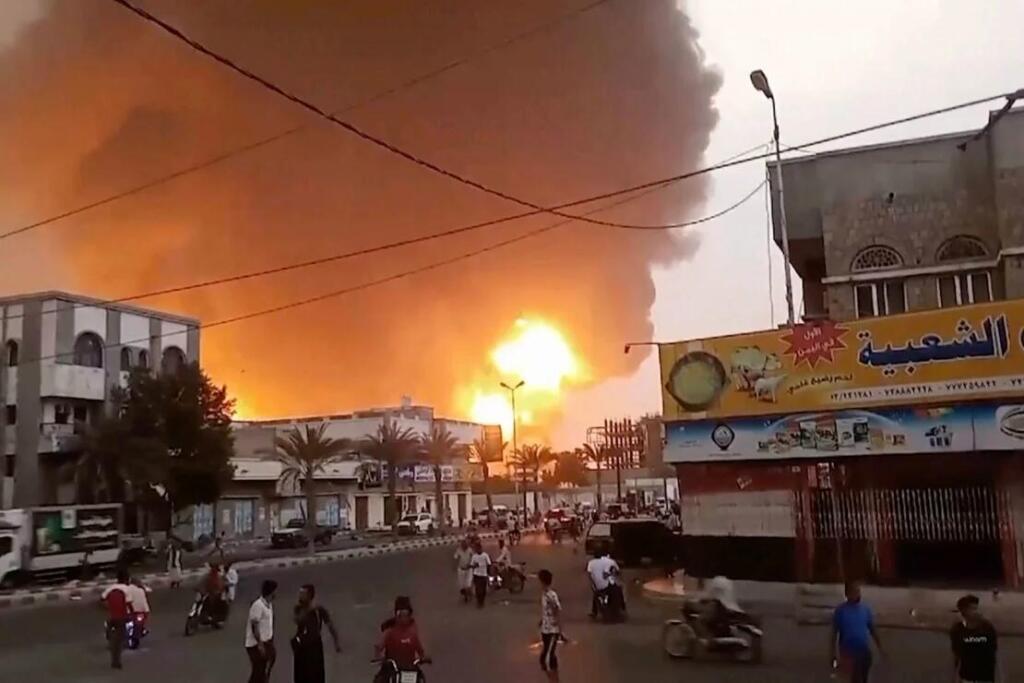In a significant escalation, Israel has launched its first-ever attack on Yemeni soil. This move comes in retaliation against a deadly drone strike by Houthi rebels on Tel Aviv. The development marks a potential new front in the ongoing Middle East conflict, which has already threatened regional stability.
The Houthis and Their Role in the Gaza Conflict
The Houthis, an Iran-backed Islamist group based in Yemen, have been actively supporting Gaza since Hamas’s October 7 attacks on Israel. They’ve targeted shipping in the Red Sea and launched numerous attacks against Israel, claiming solidarity with Palestinians.
Key points about the Houthis:
– They control most of northern Yemen after a decade-long civil war
– Iran is believed to provide them with arms and training
– They’ve launched about 200 attacks on Israeli targets since October 7
Israel’s Response to the Tel Aviv Attack
A drone attack on Tel Aviv, killing one Israeli and injuring several others, prompted Israel’s retaliation. This marked the first time the Houthis successfully struck Israel’s commercial center with a drone. Israel’s army is investigating potential security failures surrounding the attack.
Israel responded by hitting Yemen’s Hodeidah port, killing at least six people. Prime Minister Netanyahu stated the port was used to bring Iranian weapons into Yemen, emphasizing Israel’s determination to counter threats. The strike targeted oil facilities and reportedly hit civilian areas as well.
Escalating Tensions and Future Implications
Neither side shows signs of backing down. The Houthis claim readiness for a “long war” with Israel, while Israel warns of further retaliation if attacked again. Houthi leaders have announced a “fifth stage of escalation” in support of Gaza, indicating their intention to continue attacks.
Key concerns:
– Potential for a wider regional conflict
– Increased tensions between Israel and other Iran-backed groups like Hezbollah
– Risk of direct confrontation between Israel and Iran
Israel’s Strategy and International Response
Israel’s strike on Yemen likely aims to signal its resolve to both the Houthis and the international community. Netanyahu emphasized that the operation, hitting targets 1,800 km from Israel’s borders, demonstrates Israel’s ability to respond to threats anywhere.
However, experts note that Hezbollah remains a more significant threat to Israel due to its proximity and extensive arsenal. The ongoing exchanges between Israel and Hezbollah since October 8 have already heightened tensions along the Israel-Lebanon border.
The international community, particularly the US, is wary of further escalation. Any increase in hostilities between Israel and Iran’s proxies could push the region closer to widespread conflict. The US and UK have already carried out strikes on Houthi targets in Yemen, though Israel had not participated in these operations until now.
Israel’s Defensive Measures
In response to the growing threat, Israel is upgrading its air defenses and increasing aerial patrols of its borders. The military suspects the drone used in the Tel Aviv attack was an Iranian-made Samad-3 model, upgraded to extend its range.
Broader Regional Impact
The escalation between Israel and the Houthis adds another layer of complexity to the already volatile situation in the Middle East. It risks creating a new front in a conflict that has already seen increased tensions between Israel and Hezbollah, as well as ongoing operations in Gaza.
Israel’s ability to strike targets at such a distance sends a clear message to its adversaries. However, it also raises questions about the potential for further escalation and the limits of Israel’s military reach.
Conclusion
Israel’s strike on Yemen marks a significant shift in the ongoing Middle East tensions. As both Israel and the Houthis maintain aggressive stances, the potential for further escalation remains high. The international community now faces the challenge of preventing a wider regional conflict while addressing the underlying issues fueling these hostilities.
The situation remains fluid, with Israel intercepting missiles from Yemen and the Houthis promising more attacks. As the conflict expands beyond Gaza, the risk of a broader regional war increases. Israel’s actions demonstrate its willingness to engage threats far from its borders, potentially changing the dynamics of the ongoing conflict.
ALSO READ: What does Joe Biden’s Withdrawal Means for Democrats? Who is Kamala Harris?
